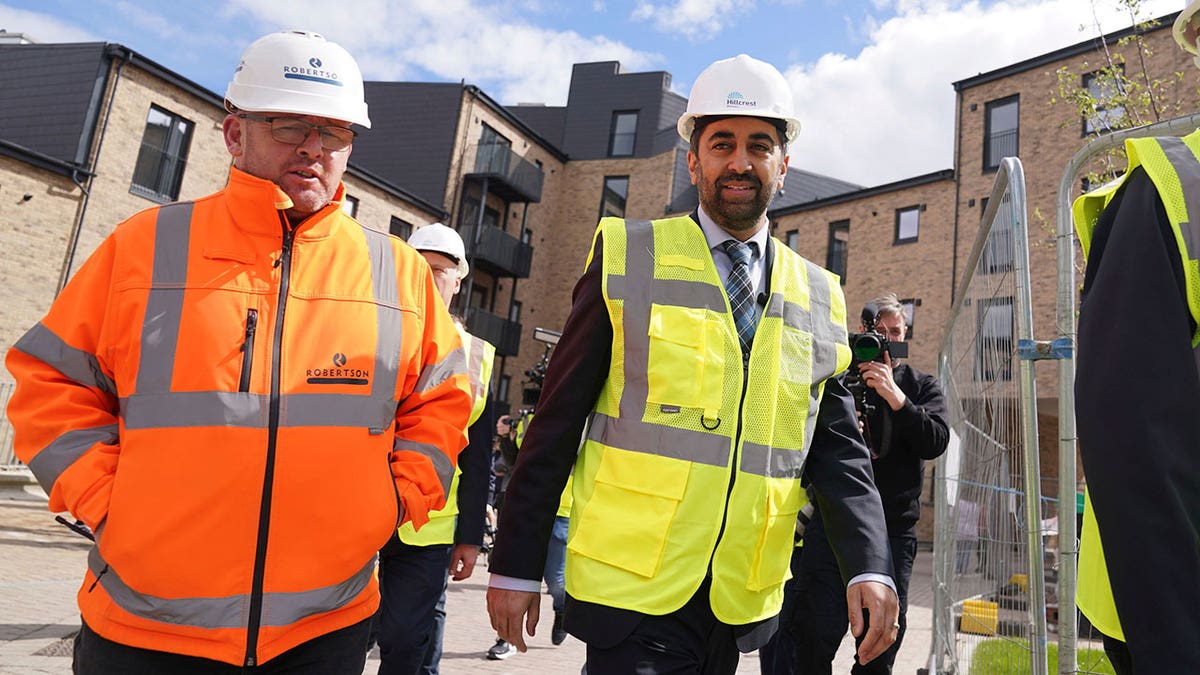Scotland’s hate crime law sparks backlash for free speech concerns
Fox News Greg Palkot breaks down Scotland’s controversial hate crime law.
- First Minister Humza Yousaf has refused to resign amid growing pressure over his decision to end a three-year power-sharing agreement.
- First Minister Humza Yousaf said Friday that he "absolutely" will fight a no-confidence vote that has been tabled against him.
- A defeat could set off a chain of events that leads to Yousaf stepping down and a potential early election in Scotland.
Scotland's leader insisted Friday that he won't be resigning as he fights for his political survival amid the fallout of his decision to pull the plug on a three-year power-sharing agreement that has made his Scottish National Party a minority government.
The pressure on First Minister Humza Yousaf has ratcheted up sharply since he abandoned the power-sharing deal with the much smaller Greens on Thursday following a clash over climate change policies. He is set to face a no-confidence vote in the Scottish Parliament next week.
"I intend absolutely to fight that vote of no confidence, I’ve got every intention of winning that vote of no confidence," he said in a hastily arranged trip to Dundee.
SCOTTISH LEADER FACES BATTLE FOR SURVIVAL AFTER ENDING POWER-SHARING DEAL OVER CLIMATE CHANGE CLASH
Following his decision to ditch the deal with the Greens, the Scottish Conservatives put forward a motion of no confidence in Yousaf as first minister.

Scotland's First Minister Humza Yousaf, center, visits the Hillcrest Homes housing development in Dundee, Scotland, on April 26, 2024. Yousaf said on Friday that he won't be resigning as he fights for his political survival amid the fallout of his decision to pull the plug on a three-year power-sharing agreement that has made his Scottish National Party a minority government. (Andrew Milligan/PA via AP)
The Greens, furious at their ejection from government, have already said they will vote against Yousaf himself, along with the other main opposition parties, including the Conservatives and Labour. Without the support of the Greens, who like the SNP back Scotland's independence from the U.K. Yousaf is two seats short of a majority.
A defeat could set off a chain of events that leads to Yousaf stepping down and a potential early election in Scotland, which isn't due until 2026.
Yousaf, who replaced long-time leader Nicola Sturgeon in March 2023, will likely need the vote of a former SNP lawmaker, Ash Regan, to survive. Regan, who left the party last October to become the first lawmaker of a rival pro-independence party, Alba, has indicated that she would seek to extract a price from Yousaf in order to back him.
Of Parliament’s 129 seats, the SNP holds 63. Regan’s backing would result in the government having 64 votes at least. In the event of a tie, the chamber’s presiding officer — Scotland’s equivalent to the speaker — would be expected to vote in favor of the status quo.
On Friday, Scottish Labour, which is connected to the U.K.'s main opposition Labour Party, said it wants to lodge a no-confidence vote next week. With Alba indicating that it won't be looking to vote against the government, it looks like the no-confidence vote will have less chance of succeeding.
If Yousaf lost the vote, ministers in the government would be required to resign immediately and the legislature in Edinburgh would then have 28 days to see if it could create a new government with majority support. If that isn't possible, then an early election would be triggered.
CLICK HERE TO GET THE FOX NEWS APP
"It’s a matter now of when, not if, Humza Yousaf will step down as first minister," Scottish Labour's leader Anas Sarwar said. "It would be untenable for the SNP to assume it can impose another unelected first minister on Scotland."
The SNP, which has dominated Scottish politics since 2007 even though it lost 2014's independence referendum, has been rocked by the news earlier this month that Sturgeon's husband, Peter Murrell, has been charged with embezzlement in an investigation into the party's finances.
Although Scotland is part of the U.K., its government has widespread powers, including over health and education, as well as some limited powers over the raising of revenues.
Opinion polls are showing that the SNP, is facing stiff opposition from Labour in Scotland as the U.K. general election draws nearer — the SNP has 43 of Scotland's 59 seats in the U.K. Parliament. The vote will take place sometime in the coming months.




















